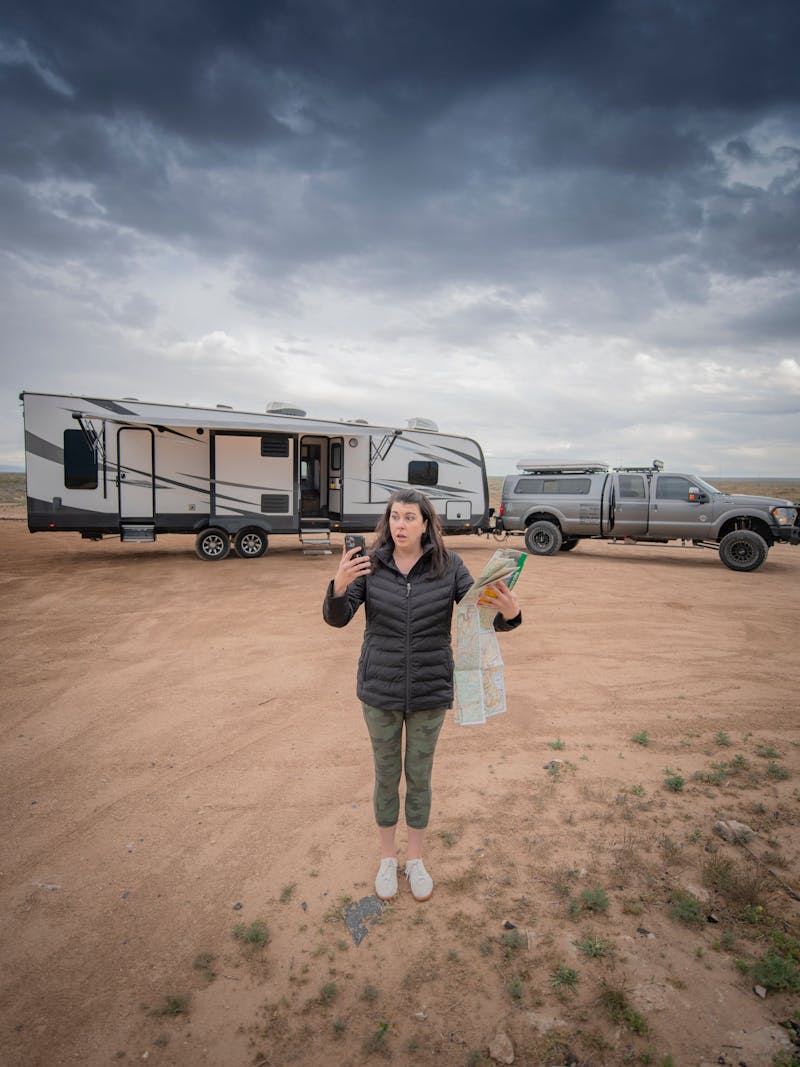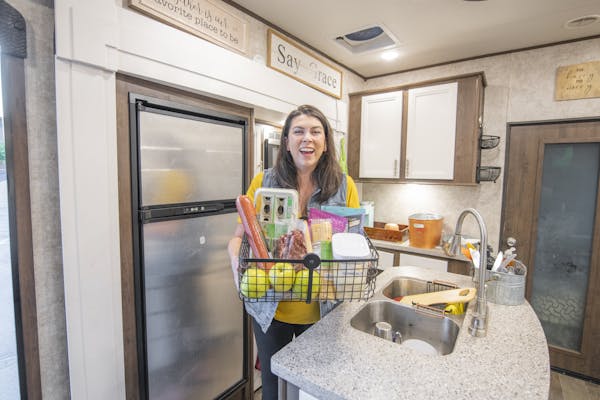While there are many benefits to RVing—the fresh air, the quality time spent with family, saving money on travel expenses—one of the top reasons we love having our Highland Ridge Highlander travel trailer is its ability to take us off the beaten path.
When you first start out RVing, it might feel intimidating to venture away from the safety of campgrounds and RV parks. Hey, we’ve all been there. But if you’re ready to take the road less traveled and try your hand at camping on public land, we’re sharing our top five tips for camping on public land and some basic etiquette you should know before you head out.
1. Research Your Location
There are a plethora of opportunities for dispersed camping on public lands, from beaches to woods to mountains and everything in between. But some “hidden gem” locations require a bit more research than others. Once we’ve landed on a general location we’d like to explore, our first step is to research it as much as possible.
We research road conditions and create a plan for entering and exiting our potential campsite. When doing your research, you'll also want to learn about any seasonal differences for that area and any weather restrictions, as those may affect road conditions or campfire bans. Since most dispersed camping locations are first come first serve, it's also a good idea to have back up locations. Google maps is a great resource to identify problem areas ahead of your travel.
Once we’ve mapped our route and done our research, we always like to write down our itinerary and leave it with a close family or friend. In many cases, dispersed camping locations do not have the best cell coverage and in a case of emergency it is good to know someone would be able to locate us quickly and efficiently.
2. Know Proper Public Land Etiquette
Whether you're camping in a privately owned campground or on BLM land in the backcountry, being a good camper is all about following neighborly etiquette. When you are camping without designated camping spots, you’ll want to pay extra close attention to your distance from other campers. The beauty of camping on public land is being able to enjoy the expanse of wilderness, so there should be no need to cramp anyone else’s campsite. If your site is in close proximity to other campers, be aware of the brightness of your lights, speaker volume and generator usage.
If you plan on bringing any furry friends along, you’ll want to make a plan for keeping your pet contained in your own designated space. It may be tempting to let your pup wander around off-leash, but there may be another camper around the bend with the same idea. It is always best to keep your pets on-leash unless you are able to maintain a close eye on them at all times.
3. Practice Food Safety
Over the years our family has learned a thing or two about planning and preparing meals for our RV trips. Enjoying a fresh, home cooked meal is the icing on the cake after a long day of adventure. But even though your RV provides the comforts of home and allows you to bring along your favorite foods, it is still vitaly important to pay attention to your food waste. You’ll want to make sure that your food is safely stowed away so as to not attract wildlife that may come looking for a snack. Be sure to remove any food that may have fallen into a campfire or that might have gotten left behind from outdoors meals and snacks.
4. Pack Out What You Pack In
As outdoor enthusiasts, it's our job to keep public forests and lands cleaner than we found them. Every time my family and I head out on a camping trip, we bring along heavy duty trash bags to clean up not only our garbage, but any trash that we might find leftover at our campsite. We also recommend bringing a small trash bag with you on a hike or while out exploring so that you can pick up any trash you see as you go. It is best to follow Leave No Trace principles and in order to not pollute the area, campers should never dispose of any hazardous materials (such as emptying your black and gray tanks) outside of designated dump stations.
5. Be Emergency Ready
When camping on public land, you might be farther away from civilization. That means you’ll want to be as prepared as possible for any unexpected events. Here are some items you should always have on hand:
- Fire Extinguisher (double check that it is still within its expiration date)
- Bear and bug spray
- An extensive first aid kid, something a bit more robust than a couple of bandaids and neosporin
- Sunblock
- Flashlights
- Back up water
Now that you know the basics of camping in public land, we hope you get out there, chase the horizon, and find new limits with your RV!





